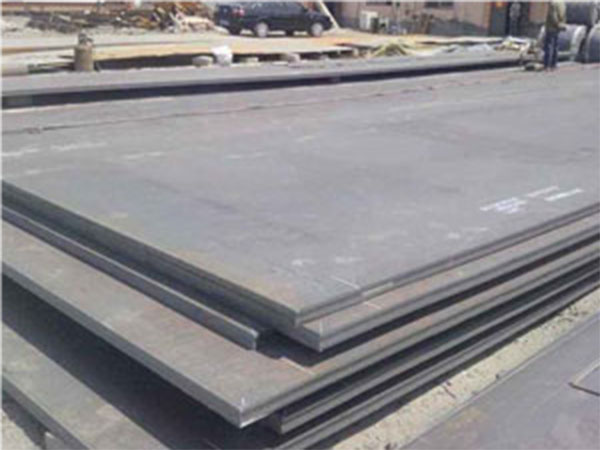ASTM A572 Grade 50 is a high-strength, low-alloy (HSLA) structural steel plate widely used in construction and industrial applications. While it is primarily designed for structural purposes, its high strength, good weldability, and excellent toughness make it a suitable material for certain boiler and pressure vessel applications when used within its specified limits. Below is an overview of its characteristics, specifications, and applications:

Key characteristics
1. High strength
Yield strength of 50 ksi (345 MPa), ensuring excellent load-bearing capacity.
Tensile strength between 65-80 ksi (450-550 MPa).
2. Good weldability
Compatible with a wide range of welding methods, including MIG, TIG, and arc welding.
3. Enhanced toughness
Maintains good toughness, even in sub-zero temperatures, depending on the application.
4. Corrosion resistance
Contains small amounts of alloying elements, enhancing its resistance to atmospheric corrosion compared to plain carbon steel.
Specifications
Standards: ASTM A572/A572M.
Grade: 50.
Thickness: typically available from 8mm to 100mm (customizable based on application).
Width: common widths range from 1,500mm to 3,000mm.
Length: can be supplied as per project requirements, often ranging from 6m to 12m.
Chemical composition
Typical values for ASTM A572 Grade 50:
|
Element |
Composition (%) |
|
Carbon (C) |
≤ 0.23 |
|
Manganese (Mn) |
1.35 max |
|
Phosphorus (P) |
≤ 0.04 |
|
Sulfur (S) |
≤ 0.05 |
|
Silicon (Si) |
≤ 0.40 |
|
Columbium (Cb) or Vanadium (V) |
0.01-0.05 |
Mechanical properties
|
Property |
Value |
|
Yield Strength |
≥ 345 MPa (50 ksi) |
|
Tensile Strength |
450-550 MPa |
|
Elongation (in 8") |
21% (minimum) |
|
Elongation (in 2") |
18% (minimum) |
Applications
1. Structural applications
Bridges, buildings, and other load-bearing structures.
Cranes, transmission towers, and heavy machinery components.
2. Boiler and pressure vessel applications
Used in low-pressure or non-critical boiler and pressure vessel environments.
Suitable for applications where high strength is required but operating temperatures and pressures remain moderate.
3. Industrial equipment
Mining and earthmoving equipment.
Conveyor systems and structural frameworks.
4. Transportation
Truck frames, railcars, and shipbuilding.
Welding and fabrication
Preheating: preheating is recommended for thick sections or low ambient temperatures to avoid welding defects.
Post-Weld Heat Treatment (PWHT): generally not required, but application-specific guidelines should be followed.
Cutting: compatible with oxy-fuel, plasma, or laser cutting.
Advantages over alternative materials
Higher yield strength compared to ASTM A36 or other lower-grade steels.
Improved resistance to atmospheric corrosion compared to plain carbon steel.
Cost-effective due to its higher strength-to-weight ratio.
Limitations
Not specifically designed for high-temperature or high-pressure environments.
May require additional surface treatment or coating for prolonged corrosion resistance in highly aggressive environments.
Conclusion
ASTM A572 Grade 50 boiler plates provide a versatile solution for structural and moderate boiler applications. While not a traditional choice for high-temperature, high-pressure boilers, its mechanical properties and durability make it suitable for various industrial uses. Understanding its specifications and properly aligning them with project requirements ensures optimal performance and longevity.
Read more : Advantages of ASTM A572 GR.50 plates